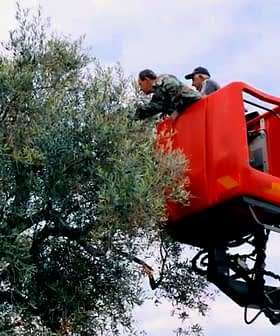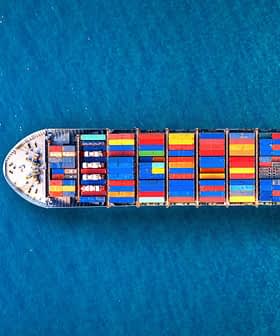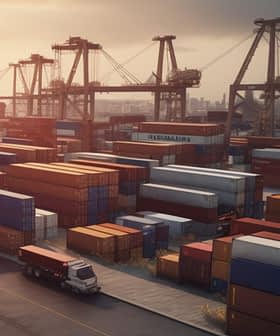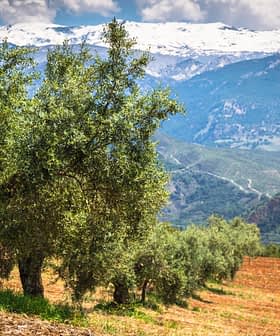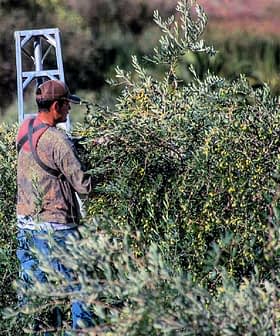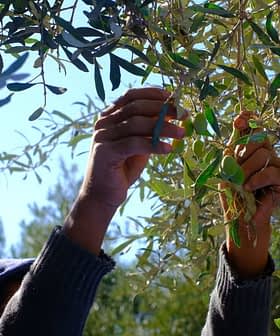One Year After EU Allows Duty-Free Tunisian Imports, Italian Producers Assure Strict Controls
Assitol is pushing for transparency to dispel concerns over duty-free Tunisian imports while proposing the extension of computerized monitoring and supporting the new inter-trade organization to ensure more product guarantees.
 Angelo Cremonini
Angelo CremoniniThe European Union has imported 7,000 tons of olive oil from Tunisia as part of a measure to support the Tunisian economy, with the action not causing an oversupply in the European market. The Italian olive oil industry is proposing to extend their high level of surveillance of the supply chain to the entire European Community in order to prevent fraud.
On the basis of an agreement signed one year ago with the aim to support the Tunisian economy after terrorist attacks, the European Union has so far imported 7,000 tons of olive oil from the North-African country, according to the last European Commission monitoring report on the impact of the measure which allows the importation of 35,000 tons per year without duties until the end of 2017.
The level of surveillance of the olive oil supply chain is very high.
In practical terms, the action did not generate a flooding of the European market with foreign olive oil, which many operators feared at first.
“Italy has to import olive oil from other EU countries in order to meet market demands,” the president of the olive oil group of the Italian association Assitol, Angelo Cremonini told Olive Oil Times.
“Only 10 percent of imports come from non-European countries, including Tunisia. Still, it is important to recall that our country can count on the national agricultural information system (SIAN), which also guarantees the traceability of wine,” Cremonini said.
The SIAN, in fact, monitors all the stages of the product’s life, which are documented in the stock records of companies, and electronically verifiable by the industry regulatory bodies, from the mill to the trader of bulk product. Thanks to this electronic network, the legal authorities have been able to discover and block several attempts at counterfeiting.
“Over the past two years, the SIAN allowed us to tackle the so-called ‘paper-oil frauds’ — namely those based on false documentation,” said Cremonini. “Furthermore, the computerized system provides the precise scale of the olive oil production, which is a fundamental tool in the prevention of potential scams.”
On this basis, the Italian olive oil industry association has proposed to the EU to extend the obligation of implementing the SIAN system throughout Community. Assitol launched the discussion within the International Olive Council and found Spain open to the proposal; nevertheless, the debate on such a complex issue is at an early stage.
The president of the association pointed out that, in Italy, nine control bodies supervise the production of olive oil: The Central Inspectorate for the protection of quality and fraud prevention of food product (ICQRF); the former State Forestry Corps, now merged in the Carabinieri; the Anti-adulteration and Health Unit (NAS) and the Antifraud Unit (NAC) of the Carabinieri; the Financial Police; the Customs Agency; the local health authorities (ASL); the Regional Agencies for the Environmental Protection (ARPA) and the public health laboratories (LSP).
Moreover, (most) olive oil companies have internal protocols to offer genuine and safe products: Basically, strict controls are carried out at all stages. “Tens of thousands of olive oil samples are analyzed,” Cremonini noted. “Controls are not limited to chemical, physical and sensory analyzes required by law, but also include additional analysis to assess the quality and purity index of each sample.”
“We can still improve,” Cremonini considered. “However, the level of surveillance of the olive oil supply chain is very high. Also, we strongly support the new inter-trade organization ‘Italian Olive Oil Chain’ (FOOI) which has the goal to connect the industry, the associations of producer organizations and the market and processing groups including Assitol, Aipo, Cno, Unapol, Unasco, Unaprol, Federolio, Aifo and Assofrantoi.”
“Our objective is to cooperate more and more closely with the supervisory bodies, with the aim of overcoming the remaining critical issues in the fight against frauds,” he concluded.


